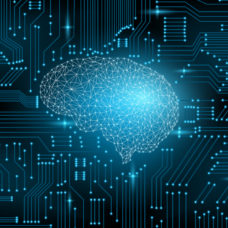IBM’s new brain-inspired architecture would allow AI computing systems to handle more data more efficiently.
The most advanced supercomputers perform calculations much faster, and hold more data, than the human brain, but in energy efficiency in regards to volume, they fall way behind.
Take Fujitsu’s K computer, for example, the first supercomputer to break the speed barrier of 10 petaflops.
At this staggering speed, K computes in one second what it would take each of the 7 billion people on the planet 17 days of performing continuous calculations, at one per second, 24 hours a day.
But K consumes enough power to run 10,000 homes, compared to the brain that requires a couple of watts to function.
Our brains do more with less volume and energy.
It makes sense that computer scientists and engineers want to take a page from nature’s book by seeking to replicate the brain architecture for future AI computers.
Read More: US Ends China’s Supercomputer Reign With IBM Summit System
Computing Processing and Memory can Co-exist, Like in the Brain
In 1945, mathematician John von Neumann described a model that became known as the von Neumann’s architecture, which is the basis of most modern computing systems.
A von Neumann machine computer is built around a central processor for logic and arithmetic, a memory unit, a storage unit, and input/output devices.
While enabling high calculation speeds and data storage, the von Neumann architecture doesn’t allow for optimum energy/volume efficiency.
Taking inspiration from the brain’s synaptic architecture, IBM scientists have been working on a design of a non-von Neumann AI that allows the co-location of memory and processing.
Researchers show that computers can handle calculations in the memory, thus improving computing performance and energy efficiency, like the brain does.
“If you look at human beings, we compute with 20 to 30 watts of power, whereas AI today is based on supercomputers which run on kilowatts or megawatts of power,” said Abu Sebastian a member of the research team. “In the brain, synapses are both computing and storing information. In a new architecture, going beyond von Neumann, memory has to play a more active role in computing.”
The co-location of processing and memory is one aspect of the novel non-von Neumann AI structure that IBM researchers copied from the brain.
But there are two more inspiration levels the team drew on.
The second one mimics the brain’s synaptic network structures to design; “arrays of phase change memory (PCM) devices to accelerate training for deep neural networks. Lastly, the dynamic and stochastic nature of neurons and synapses inspired the team to create a powerful computational substrate for spiking neural networks.”
To see how their Non-von Neumann AI would improve the overall efficiency of computers, the team tested a prototype computing system based on the new architecture using an unsupervised machine learning algorithm.
They also ran the AI algorithm on a conventional computer, and results exceeded the team’s expectations as they found the prototype system able to “achieve 200 times faster performance in the phase change memory computing systems as opposed to conventional computing systems.”



















Comments (0)
Least Recent